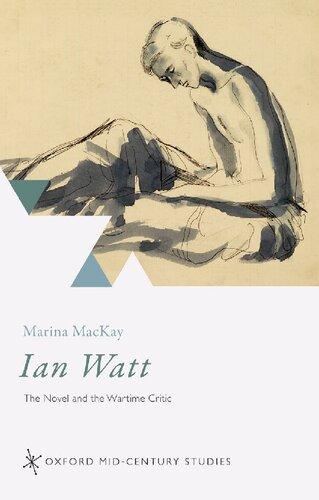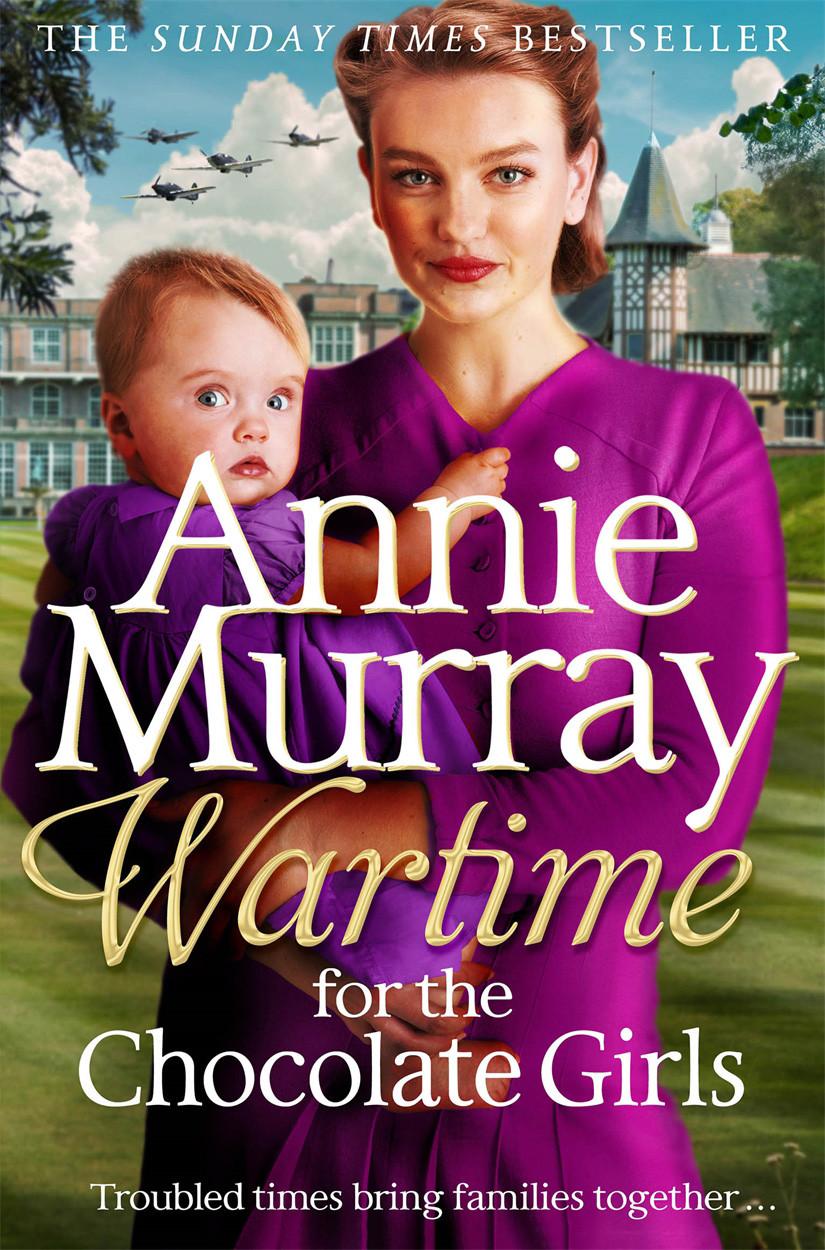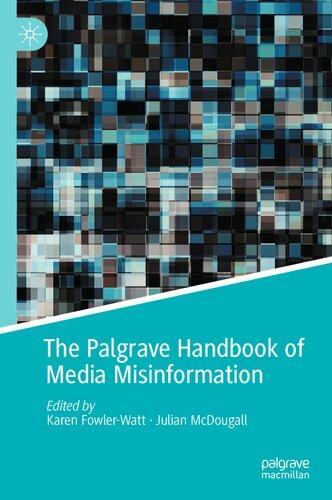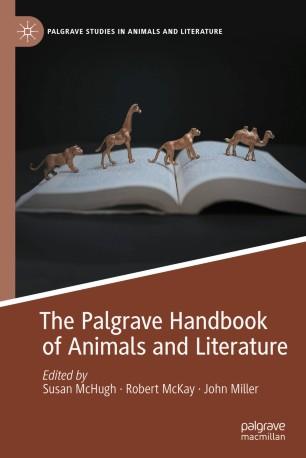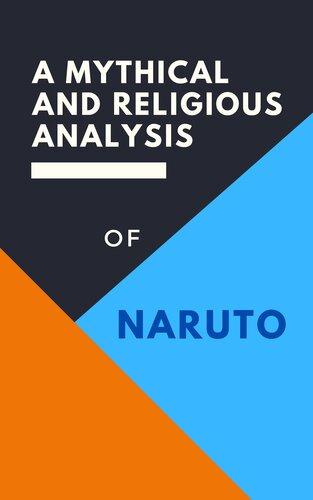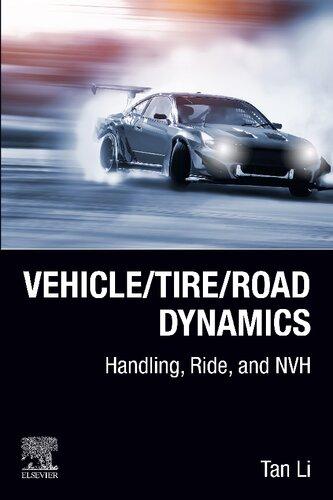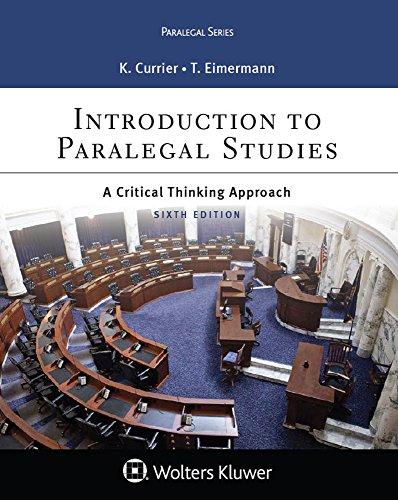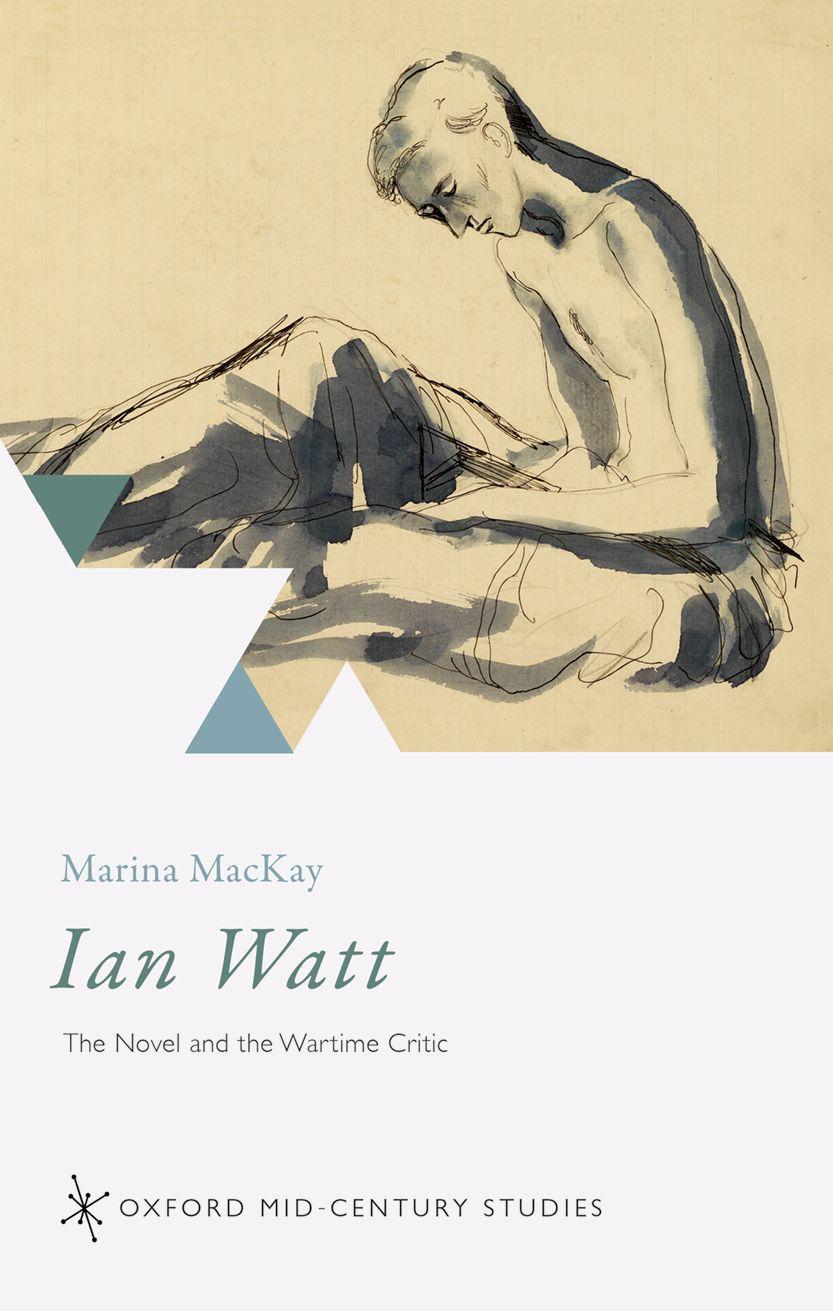Acknowledgements
Material from the first chapters originally appeared in ‘The Wartime Rise of The Rise of the Novel’, Representations, 119 (Summer 2012), 119–43, © 2012 by the Regents of the University of California. I am grateful to the Representations editorial board, and especially Kent Puckett, for encouragement before this book was ever thought of. And it is only a book now thanks to Jacqueline Norton at Oxford University Press, Series Editors Allan Hepburn, Adam Piette, and Lyndsey Stonebridge, and the anonymous readers for the Press: my sincere thanks to them all for their help and encouragement.
I could not be more grateful to Feeny Watt for allowing me to quote from her father’s remarkable archive, as well as for reading a late draft of this book in its entirety. Ian Watt’s family—his children Feeny and George, and his granddaughter Alison Reed—have been more generous and supportive than any author could hope for.
Most of the unpublished material quoted in what follows is deposited in Stanford University’s Special Collections, and I am glad to have the chance to thank the unstintingly helpful Stanford archivists for help both on site and long distance. Thanks also to Bridget Gillies of the University of East Anglia Special Collections, who did so much of my work there for me, and to Miranda Rectenwald and her colleagues in the Special Collections of Washington University in St Louis, who made it possible for me to hear Watt’s voice for the first time by digitizing a fragile recording of a lecture Watt delivered there decades earlier. Finally, I am grateful to research staff at The National Archives for their speedy recovery of a document that I doubted had survived.
Any book must accrue many more debts than its author knows, but it is a pleasure to acknowledge mine to Nicoletta Asciuto, Miriam Bailin, Ros Ballaster, Guinn Batten, John Bender, Lara Bovilsky, Matthew Campbell, Bliss Carnochan, Robert Caserio, Mark Damazer, Lara Ehrenfried, Harris Feinsod, Jason Harding, Dillon Johnston, Peter Kalliney, Michelle Kelly, Benjamin Kohlmann, Susan Jones, Joseph
Loewenstein, Deidre Lynch, Peter D. McDonald, Donald MacKay, Peter Mackay, Kate McLoughlin, Sandra Macpherson, Ashley Maher, Laura Marcus, William Maxwell, Leo Mellor, Steven Meyer, Emilie Morin, Ankhi Mukherjee, John Nash, Seamus Perry, Gill Plain, Rachel Potter, Petra Rau, Alastair Renfrew, Rod Rosenquist, Ray Ryan, Victor Sage, Corinne Saunders, Wolfram Schmidgen, Claire Seiler, Vincent Sherry, James Smith, Richard Sugg, Matthew Taunton, Julia Walker, Patricia Waugh, Clare Westall, Mark Wollaeger, and Steven Zwicker.
I owe special debts to the two colleagues closest at the end: David Dwan, for reading my work with his characteristic kindness and imagination, and Abigail Williams, for unfailing inspiration, backbone, and laughter. Finally, it was thanks to Dan Grausam that I even considered writing this book, thousands of miles away from here and in what already feels another lifetime. It would be impossible to write about lives shaped by contingency and not wonder at the luckier accidents of our own.
Introduction
‘Looking back, then,’ Ian Watt told an audience in 1978, ‘I can see beneath what I hope is the unassuming surface of The Rise of the Novel the troubled undercurrents of a fairly representative set of the main intellectual tendencies of its period of gestation—1938 to 1956’.1 Watt outlines these influences: ‘two great but very different traditions of thought: first, of the empirical, historical, and moral elements of my Cambridge training; second, of the many other theoretical elements in the European tradition—formalism and phenomenology in a minor way, and Marxism, Freud, and the Frankfurt School in somewhat larger part’.2 Watt’s intellectual debts are easily identified because he declared them so readily. He studied at Cambridge in the late 1930s with the Leavises and I. A. Richards. He became friends with Theodor Adorno shortly after the Second World War, while he was taking graduate seminars in anthropology and sociology at UCLA (‘the Frankfurt School . . . was then located in the area round the Pacific Palisades’).3 On the same Commonwealth Fellowship, he studied social theory at Harvard with Talcott Parsons, where he first encountered the work of Max Weber (which ‘made me very aware of the dubiousness of many of the unchallenged assumptions I had more or less unconsciously picked up’).4 An intellectual orientation emerges as the effect of serial accidents rather than the work of individual design, or, as Watt put it, ‘academic writing, in its small way, is also subject to the processes of history’.5
1. Ian Watt, ‘Flat-Footed and Fly-Blown: The Realities of Realism’, Stanford Humanities Review, 8/1 (2000), 58.
2. Watt, ‘Flat-Footed’, 58. 3. Watt, ‘Flat-Footed’, 55. 4. Watt, ‘Flat-Footed’, 56.
5. Ian Watt, ‘Serious Reflections on The Rise of the Novel ’, in Ian Watt, The Literal Imagination: Selected Essays, ed. Bruce Thompson (Palo Alto: Society for the Promotion of Science and Scholarship and the Stanford Humanities Center, 2002), 1.
Like Watt’s own book, Ian Watt: The Novel and the Wartime Critic is about ‘the troubled undercurrents’ of 1938 to 1956, and about the ways in which criticism was ‘subject to the processes of history’ in those years. Whereas Watt was forthcoming about his intellectual debts, he said little about the other historical forces that affected his thinking, but the progress of the project that became The Rise of the Novel was dramatically interrupted for seven years by the Second World War, and, above all, by one of the most shatteringly traumatic of war experiences, when Watt was taken prisoner at the fall of Singapore and became one of Japan’s many thousands of brutalized prisoners on the Burma–Thailand Railway. My book is about how that world helped to shape his hugely influential scholarly work, and, more broadly, about the extent to which the historiography of the novel is bound to the historical events of the mid-century.
In one sense, Watt’s was a shared experience of injury and deprivation; in another, it was a profoundly individual one, and ‘individual experience’, as he reminds us early in The Rise of the Novel, ‘is always unique, and therefore new’.6 I turn to the detail of Watt’s biography in the first chapter, but the next few pages outline the wider critical contexts for my argument. Most important among them is the recent attention given to the distinctiveness of mid-century thought, already the subject of major works focusing on the intellectual life of the United States around the Second World War. In his impressive The Age of the Crisis of Man (2015), Mark Greif defines the decades between the mid-1930s and mid-1970s as a period when ‘man’ was ‘the figure everyone insisted must be addressed, recognized, helped, rescued, made the center, the measure, the “root,” and released for “what was in” him’.7 Mid-century thinkers sought a new humanism adequate to their times, ‘human respect giving its grounds entirely to itself, without God, natural law, positive fiat, or even anything identifiable about the human person’; they asked, ‘what could be left of the Enlightenment without the idea of progress?’8 Amanda Anderson presents a compatible account of this period in Bleak Liberalism (2016), where she finds at mid-century the
6. Ian Watt, The Rise of the Novel: Studies in Defoe, Richardson and Fielding (Berkeley and Los Angeles: University of California Press, 2001), 13. Subsequent references are to this edition and are cited parenthetically as RN followed by page numbers.
7. Mark Greif, The Age of the Crisis of Man:Thought and Fiction in America, 1933–1973 (Princeton: Princeton University Press, 2015), 8.
8. Greif, The Age of the Crisis of Man, 23, 24.
strongest evidence that liberalism accommodates ‘sober and even stark views of historical development, political dynamics, and human and social psychology’.9 As she explains, ‘it in fact sounds odd to anyone steeped in that period of history to assert that liberalism is bleak—odd because it is so obviously true’, but what is most distinctive about the mid-century moral context is ‘the interplay between a tragic ethos and a pragmatic politics, whereby the political commitment is somehow deepened by the subtending existential stance’.10 The story I tell here supports Greif’s and Anderson’s sense of a liberal humanism finding its impetus rather than its contradiction in perceptions of human vulnerability and limitation.
I share their interest in the mid-century as unfinished business.They show how our contemporary political and moral paradigms are bound to historical perspectives that are both slipping from living memory and yet too recent to have been examined with the sustained attention that would allow us to recognize the origins of our own ideas.The midcentury is perhaps uniquely important for literary critics as the transatlantic high-water mark for the cultural influence, even prestige, of English as a discipline, and Greif offers a fascinating account of how mid-century criticism fell into line with the prevailing discourse of ‘the crisis of man’, creating a canon to which living novelists such as William Faulkner and Ernest Hemingway retrofitted themselves in real time.11
From that point of view, Greif’s book is also part of an important turn towards historicizing post-war criticism.The project of historicizing theory began some time ago. Back in 1993, Tobin Siebers argued that the theoretical assumptions underpinning post-war American criticism were ‘a product of the cold war, and the repeated emphasis by the New Critics on objectivity, ambiguity, paradox, the impossibility, and double meaning are part of the cold war climate’.12 For Siebers, the deconstructive modes that breathed new life into the New Critical attention to the text in itself were no less historically determined, even as history was among the things poststructuralism seemed to be escaping. In the introduction to his 2004 collection Historicizing Theory, Peter
9. Amanda Anderson, Bleak Liberalism (Chicago: University of Chicago Press, 2016), 2.
10. Anderson, Bleak Liberalism, 24, 28.
11. Greif, The Age of the Crisis of Man, 103–41.
12. Tobin Siebers, Cold War Criticism and the Politics of Skepticism (New York: Oxford University Press, 1993), 30.
Herman argued for the need to historicize theory outside of ‘the old History of Ideas approach, which views texts almost exclusively in relation to previous texts and only rarely in relation to the political or social events surrounding and informing them’.13 Thus, for example, his volume includes Karen Raber’s fascinating reading of Michel Foucault in relation to the French experience of the Second World War; a teenager when the war broke out, Foucault had seen at first hand a fatally compliant populace during the period of the German Occupation and Vichy regime.14 Rupert Read has likewise made the case for reading Wittgenstein’s Philosophical Investigations as ‘a war book’: written between the enforcing of the Nuremberg Laws and the final year of the Second World War, the Philosophical Investigations ‘aims to midwife its readers’ acknowledging—really acknowledging—the humanity of all human beings, and not merely of a favored subset’.15
With literary criticism rather than theory in mind, Simon During and Joseph North have recently offered important accounts of English between its institutionalization as an academic subject and the changes wrought by theory, addressing the divorce between contemporary literary studies and its formerly public-facing cultural life. During offers an avowedly elegiac account of the pre-theory moment in Against Democracy (2012), when he writes of the collapse of the culturally interventionist (in Britain, Leavisite in a broad sense) critical project: ‘The divorce of language from experience was now shaped as academic orthodoxy. Paradoxically, the linguistic turn helped hobble literary criticism: it broke its connection to wider social critique and to larger social purposes.’16 Like North in Literary Criticism: A Concise Political History (2017), During believes that the discipline might gain from knowing where, historically, it began. They disagree on the political roots of literary criticism—During emphasizes conservative origins (pre-eminently T. S. Eliot) whereas North recuperates left-liberal progenitors (Richards, William Empson)—but they both stress how
13. Peter C. Herman, ‘Introduction: The Resistance to Historicizing Theory’, in Peter C. Herman (ed.), Historicizing Theory (Albany, NY: State University of New York Press, 2004), 1.
14. Karen Raber, ‘Michel Foucault and the Specter of War’, in Herman (ed.), Historicizing Theory, 49–67.
15. Rupert Read, ‘Wittgenstein’s Philosophical Investigations as a War Book’, New Literary History, 41/3 (Summer 2010), 593.
16. Simon During, Against Democracy: Literary Experience in the Era of Emancipations (New York: Fordham University Press, 2012), 74.
mid-century literary criticism understood its own potentially transformative social purposes. In North’s summary, the ‘largely lost project’ of literary criticism was ‘an institutional program of aesthetic education—an attempt to enrich the culture directly by cultivating new ranges of sensibility, new modes of subjectivity, new capacities for experience—using literature as a means’.17 This was Watt’s intellectual world, and one reason why he is an instructive figure is that his career corresponds precisely to the rise and fall of ‘criticism’ as During and North understand it, bridging the institutionalization of English in interwar Cambridge and the entrenchment of theory in the English departments of the elite American universities in which he spent most of his career.
Around the same time as Watt was using his own work, as I mentioned earlier, in the kind of academic talk that he termed ‘solicited transgression in the self-congratulation line’, among the responsibilities of his eminence was the expectation that he would voice more directly his views on the state of the discipline.18 In 1971, he crossed swords with his interwar English mentors, the Leavises, when he reviewed Dickens: The Novelist on the BBC. Their book was part of the flurry of publications marking the centenary of Dickens’s death, and Watt reflected on how the Leavises’ apparent change of heart accorded with the upward trajectory of Dickens’s reputation more generally. Watt broadly agreed with their revised judgements but deplored their accompanying denigration of the work of American scholars, which the Leavises dismissed here as ‘wrong-headed, illinformed in ways we have demonstrated, and essentially ignorant and misleading’:
This corrective purpose is remorselessly pursued, as one critic after another is dispatched in a parenthesis or buried in a footnote.
Why bother, one wonders? Can one imagine the Dove of the Annunciation turning into a rancorous jackdaw that thinks it worth his while to hoard what he hates? How can any fallible human being be quite so sure that everyone else is wrong? Wasn’t Edmund Wilson’s influential essay an important tribute? And didn’t Wilson himself later apologise for some of its shortcomings? For that matter, didn’t another American, Lionel Trilling, make many of [F. R.] Leavis’s points on Little Dorrit, including the analogy with Blake, nearly twenty
17. Joseph North, Literary Criticism: A Concise Political History (Cambridge, MA: Harvard University Press, 2017), 14, 6.
18. Watt, ‘Flat-Footed’, 53.
years ago, and conclude that Dickens was ‘one of the two greatest novelists of England’? Was it an American who wrote in 1932 that ‘Dickens stands primarily for a set of crude emotional exercises’, or was it Q. D. Leavis? And wasn’t it F. R. Leavis who in 1948 excluded Dickens from the Great Tradition because ‘his genius was that of a great entertainer’. I can think of only one analogy to this combination of relentless condemnation of others and obliviousness to one’s own proneness to error.The Pope, like other human beings, has changed his public pronouncements in the course of history: but he alone has asserted that all of them were equally infallible.19
But, to borrow Watt’s question, ‘Why bother?’ His voluminous professional correspondence leaves the impression of someone with considerable ironic detachment and an aversion to academic drama. It was not even as if he had any special investment in Dickens, about whose fiction he was fairly lukewarm. As far as the Leavises themselves were concerned, he had always declared his most unfashionable debts to them. But their attack on American scholarship as such clearly exasperated him enough to feel it was worth correction, even if he knew that his review would draw a furious response from the Leavises (it did).20
However, it was also in the 1970s that Watt watched his own humanist mode provoke (in his word) ‘antipathy’.21 A fluent French speaker— son of a Frenchwoman and a Scottish teacher of French, he had studied at the Sorbonne in the late 1930s—Watt had followed with unease the inroads of structuralism into Anglophone criticism: a critical dead-end, he thought, with those ‘deep universal structures’ that he satirized as its ‘timeless verities’.22 What followed structuralism he considered potentially more damaging, an ominous flight from philosophical method. Even leaving aside ‘the appalling logical inadequacy of such writers as Lacan’, he wrote, the main institutional outcome of poststructuralism had been a mass of theory textbooks in the style of ‘do-it-yourself kits
19. Ian Watt, ‘The Leavises on Dickens’, Listener, 11 March 1971, 300.
20. The main features of Q. D. Leavis’s response are rudeness (Watt is accused of ‘spite’ and ‘blatant dishonesty’), self-aggrandizement (it is not Cambridge undergraduates but ‘pupils of mine’ who take a distinguished Dickens lecturer to task), and scattershot grievances against Cambridge and the profession at large (‘I have been persona non grata to the Cambridge English Faculty as regards appointments for 40 years’; unnamed careerists have continually ‘plagiarised’ their work ‘for academic advancement’; ‘we have been forever persecuted’). ‘Letters: The Leavises on Dickens’, Listener, 8 April 1971, 451.
21. Tzetan Todorov, Literature and its Theorists: A Personal View of Twentieth-Century Criticism, trans. Catherine Porter (Ithaca, NY: Cornell University Press, 1987), 119.
22. Watt, ‘Flat-Footed’, 66, 63.
which promise the user a magic transformation into being what he most wants—to be a philosopher without doing philosophy’.23
Watt had his own reasons to be concerned by the increasing institutional power of critical theory in the late 1970s. When the manuscript of Conrad in the Nineteenth Century (1979) was ‘in effect, turned down’ because a reader for the University of California Press deplored its theoretical eclecticism, Watt wrote to the Press that ‘I don’t think anyone is entitled to assert as a general principle that every book of criticism should contain “a forthright statement or explanation of the rationale of its critical method” ’.24 Disliking programmatic intellectual positions, the critic who defended American criticism against the Leavises now mobilized the urbanity of British critical traditions: ‘This critical reticence may just be a reflection of the English notion of polite manners in public discourse; but there are surely some positive advantages.’25 (Famously, Leavis had refused René Wellek’s challenge in 1937 to explain the theory underpinning his judgements.26) Not everything, Watt felt, needs to be spelled out.This was how he explained his refusal to add a methodological preface:
The full critical justification of my Conrad enterprise which the Editorial Committee asks me to add to my preface would not be particularly difficult to do (examples are available in most doctoral dissertations); but, through its necessary abstractness, over-simplification, and implied self-importance, it would remove the book from the particular literary sphere where I think it belongs; and if I began the book with such a statement, I would immediately bore, offend, or deter many of my readers, since I would in effect be saying, ‘This is where I stand on the various principles which we critics have been quarrelling about over the centuries. Pay very close attention because it’s the price of admission to the book that follows.’27
The book was eventually accepted without the theoretical positioning on which its publication had initially been conditional, but the dispute is an important reminder that Watt was closing out his career against
23. Watt, ‘Flat-Footed’, 66.
24. Ian Watt, ‘Realism and Modern Criticism of the Novel’, Stanford Humanities Review, 8/1 (2000), 80.
25. Todorov, Literature and its Theorists, 119.
26. Ian MacKillop gives a brief, balanced summary of the Leavis/Wellek encounter in F. R. Leavis: A Life in Criticism (London: Penguin, 1995), 171–2.
27. Todorov, Literature and its Theorists, 120.
the polarizing backdrop not simply of contesting theories about literature but of pro-‘theory’/anti-‘theory’ positions altogether.
Pressed by Todorov on his refusal ‘to affirm a general critical position’, Watt explained that ‘the reluctance to state one’s premises is partly because of my empiricism, or my skepticism about philosophical methods in general; but also because of my particular belief in the function of critical writing. It is relatively humble.’28 The growing expectation in this period of more complex methodological commitments meant that, on the one hand, Watt’s work could be cast as lightweight and lacking rigour, the charge encoded most politely in the default term ‘empirical’; on the other hand,Watt could be used as quite a hefty stick to beat critics dazzled (so this competing story goes) by their faddish embrace of all things theoretical, or, as his former colleague Joseph Frank put it in 2000, ‘the hit-parade of lit-crit ideologies that have strutted across the cultural scene in the past twenty years or so’.29 If Watt’s views about literature were a product of a particular historical moment, so was the subsequent debate that too stridently attacked or defended critics’ right to proceed without elaborating all the underlying implications of these views.
Although no literary critic thinks to aspire to the virtues of the work she discusses—the wish not to sell them short goes without saying— this book is inevitably vulnerable to similar methodological challenges to those directed at Watt: an inattention to precursors; a tendency to shore up a contestable or outmoded canon; a totalizing view of the relationships between writing and life, and between historical experience and intellectual orientations. Charged with similar positivist offences, Watt provided an Olympian non-response: ‘a yawn followed by a plea of nolo contendere’.30 The legal metaphor—Watt’s refusal to supply the literary-critical equivalent of either legal defence or allocution (‘I do not wish to contend’ avoids both)—underscores his sense
28. Todorov, Literature and its Theorists, 115, 119.
29. Joseph Frank, ‘Foreword’, Stanford Humanities Review, 8/1 (2000), ix. See also Joseph Frank, ‘The Consequence of Ian Watt: A Call for Papers on Diminished Reputations’, Common Knowledge, 13/2–3 (2007), 497–511. Frederick Crews’s foreword to a posthumous collection of Watt’s essays characterizes Watt’s work as ‘the most telling, if implicit, critique of an academic practice that by now is humanistic in name only. Would it be too much to hope that, when the dust has mercifully settled over poststructuralism and postmodernism, critics will rediscover the kind of engagement from which Ian Watt never swerved?’ (The Literal Imagination, xiii).
30. Todorov, Literature and its Theorists, 115.
that recitations of one’s own principles may be little more than conventional rhetorical exercises (‘examples are available in most doctoral dissertations’).
Further-reaching questions of reticence bring me to the main topic of this book, which is about what was also not said at the time. Some of it might have gone without saying when events were so painfully proximate, but most of it could never have been said by the people most directly affected. The core of this book is a war experience about which Watt wrote relatively little and only self-effacingly, and never with reference to his academic life. Chapter 1 reconstructs that war experience from capture to demobilization, showing how it is coded in the whole body of his criticism, not least as a preoccupation with the tacitness of critical sympathy and the advantages of autobiographical silence.
Chapter 2 turns to Watt’s landmark The Rise of the Novel and reads Daniel Defoe in relation to the culture of the Second World War’s prison camps. Watt famously argued in his discussions of Robinson Crusoe and Moll Flanders that the novel was brought about by and reciprocally advanced the rise of individualism, a claim that has been scrutinized by many subsequent scholars of the early novel. This chapter reads Watt’s claims in relation to the radical individualisms recorded in the mid-century literature of imprisonment, focusing on that body of writing’s most recurrent of stock figures, the feared and admired racketeer who survives, even thrives, in conditions of almost universal privation. Moll Flanders exemplifies ‘the psychology of a special kind of business entrepreneur’, Watt argued, and the English economist R. A. Radford (‘an ex-prisoner of some three months’ standing’) wrote in his 1945 essay ‘The Economic Organisation of a P. O. W. Camp’ of how, ‘through his economic activity, the exchange of goods and services, his [the prisoner’s] standard of material comfort is considerably enhanced’.31 The prisoner-entrepreneur is a figure of fascination in the fiction and memoirs of this period, appearing in the work of major writers from Primo Levi to J. G. Ballard, as well as in the many now-forgotten memoirs also discussed in this chapter. Supporting my claim that the individualists who populate Watt’s reading
31. Ian Watt, ‘The Recent Critical Fortunes of Moll Flanders’, Eighteenth-Century Studies, 1/1 (Autumn 1967), 112. R. A. Radford, ‘The Economic Organisation of a P. O. W. Camp’, Economica, 12/48 (November 1945), 189.
of Defoe are figures from the prison camp is the fact that the camp entrepreneur is a central, and surprisingly sympathetic, figure in the unpublished and unknown short stories Watt wrote at the same time as he was redrafting what would become The Rise of the Novel.
I turn then to Samuel Richardson. Chapter 3 addresses Watt’s similarly influential claims about the rise of the novel as the rise of realism by asking why he singled out Pamela as the prime instance of the commercialization of private fantasy that he took to be the dominant and most pernicious characteristic of the modern culture industry. This chapter reads his caustic treatment of Richardson’s mass-market fairytale alongside his published writings on the wishful misrepresentation of the Japanese prison camps in The Bridge on the River Kwai (‘The big prizes to the whopping liars’ was his summary verdict on that movie’s enthusiastic reception32). I argue that the exasperated handling of Pamela in The Rise of the Novel is an attack less on the courtship novel than on the cultural environment of which Watt took Richardson’s style and success to be early symptoms. Individualism becomes the ego’s imaginary omnipotence over intractable circumstances, and the supposed ‘formal realism’ of eighteenth-century romantic fiction and Hollywood cinema proves to be mere ‘pseudo-realism’ working to nurture intoxicating delusions of autonomy. But there is also, I suggest, a competing version of Richardson in The Rise of the Novel, when Watt’s identification with the fatally imprisoned protagonist of Clarissa—no one knew better than the former prisoner of war what it meant to have no options left— indicates a more fraught understanding of selfhood than we usually associate, thanks ironically to the influence of Watt’s own book, with the traditional view of individualism and the novel.
Chapter 4 tries to account for the problem many have identified in The Rise of the Novel: that Watt’s argument cannot accommodate Henry Fielding, neither a realist at the level of narrative form nor concerned with individualism except as a threat to social stability. Indeed, the conventional view that The Rise of the Novel sold Fielding short emerged before the book was even published, when Watt’s then-employer, the University of California, declined to award Watt a doctorate because of the perceived weakness of the Fielding material in the manuscript of
32. Watt’s comment appears on a newspaper clipping about the film’s large television viewing figures. Stanford University Special Collections, SC401-ACCN 1990–131, Box 56, Folder ‘Kwai: Observer and Life’.
The Rise of the Novel, which Watt submitted at Berkeley in lieu of a conventional Ph.D. thesis. Yet he always professed the importance of Fielding, within and outside the book, and this chapter takes equally seriously Watt’s declared admiration for Fielding and the relatively cold-blooded and abbreviated quality of his treatment of him. I suggest here that the ‘realism of assessment’ he identifies with Fielding expresses a commitment to shared social and moral standards capable of defending the inner as well as the collective life from total collapse at times of crisis—a wholly calculated lowering of the psychological temperature. This chapter reads Watt’s Fielding alongside the decisively antiindividualist thrust of prison-camp writing as it describes pivotal moments when prisoners felt themselves slipping down into social as well as environmental degradation; it suggests that Fielding, as a champion of civic order, spoke for Watt to the disciplined collectivity that, all witnesses report, made their survival possible in the end.
It would be impossible to overstate the importance of collective discipline in these beleaguered camps. Third on the critic (and war veteran) Samuel Hynes’s inventory of ways in which Second World War prisoners could maximize their chances of survival—right after, first, getting captured in Europe rather than the Far East, and, second, being an officer rather than another rank—is working to ‘construct a prison society; model it on the army or on an English public school’.33 The joking manner notwithstanding, Hynes knew that reconstructed prison-camp societies had saved thousands of lives, in a development that helps to explain the attraction for Watt of Fielding’s sociable conservatism. As this chapter also shows, Watt’s other major monograph, Conrad in the Nineteenth Century, focuses above all on the conflicts between individualism and group identity: ‘It is largely Conrad’s tragic awareness of the reciprocal but conflicting demands of the individual and of society which makes his fiction seem so modern today,’ Watt wrote.34 The Conrad book addresses the deeply problematic nature of solidarity at moments of crisis, as when Conrad’s narrators overwrite the collapse of order with more affirmative and normative versions of what ought to have happened, or when Conrad registers the psychic
33. Samuel Hynes, The Soldiers’ Tale: Bearing Witness to Modern War (London: Penguin, 1997), 257.
34. Ian Watt, Conrad in the Nineteenth Century (Berkeley and Los Angeles: University of California Press, 1979), 358–9. Subsequent references are to this edition and are cited parenthetically as C., followed by page numbers.
costs of a social conformity in which he otherwise wanted to believe: ‘if he felt a deeper and more conscious commitment to solidarity, he also felt a deeper and more conscious resentment of its obligations’ (C. 336).
Chapter 5 takes up a question that Watt asked when he announced the timeliness of Conrad at mid-century:
For since the Second World War, the experience of a whole generation has brought it close to Conrad’s personal position; partly because world history has played over so many of his themes in deafening tones; and partly because our habituation to alienation, reinforced by the vision of the other great modern writers, has inevitably brought us back to the dominating question in Conrad: alienation, yes, but how do we get out of it?35
Conrad’s effort to salvage community from the ruins of older systems of value is made to anticipate no less than the ‘experience of a whole generation’—Watt’s own. This chapter explores the overlap between Watt’s priorities and the fiction of his time, and particularly the path out of the perceived alienations of modernism offered by forms of realism in the years after the war. This chapter argues that Watt’s keywords of individualism, empiricism, and realism became central to both the novel and novel criticism at mid-century because they were useful terms for trying to come to terms with the 1940s for those who suffered some of the worst experiences that even that abysmal decade could offer. Asking searching questions about the function of the novel, this period attempted to recover realism as a means for moral reckoning and social rehabilitation.
Chapter 6 focuses on the institutional dimension of Watt’s work as a post-war humanist, for his military and scholarly careers intersect in his attention to the ways in which literature and literary criticism not only express social attitudes but bring societies into being in the form of disciplines and institutions. This chapter describes how, as a 24-yearold prisoner, Watt cut his teeth on academic administration as one of the founders of a prison camp ‘English department’, indicating his faith (actually warranted, it turned out there) that even in catastrophic circumstances the organized humanities fulfilled powerful needs. This was the forerunner to an administrative career in which he would ultimately become the founding director of the Stanford Humanities Center, and a member of the 1974 working party that led to the creation of the
35. Ian Watt, ‘Joseph Conrad: Alienation and Commitment’, Essays on Conrad, ed. Frank Kermode (Cambridge: Cambridge University Press, 2000), 13.
National Humanities Center. Looking at Watt’s post-war understanding of institutions of literature, exemplified in this chapter by the vision of ‘English’ that he had to formulate in order to create from scratch the founding humanities department at the new University of East Anglia, we find an argument for forms of sociability, creativity, and historicity in literary studies that looks back to the catastrophic circumstances of the camps.
1
Lt Ian Watt, POW
‘This book is about Allied prisoners of war taken by the Japanese in World War II.With those POWs, the cliché that every human life has a book in it takes on the force of a real truth: the life of any one of them is worth a book.’
Gavan Daws, Prisoners of the Japanese (1994)1
‘Because what you have to remember, Charley boy, is that you’re one of the lucky ones. You’re back.’
Henry Green, Back (1946)2
The idea that there is a book in every former prisoner of the Japanese during the Second World War has a special aptness in relation to the life discussed here. No one could have understood better the book-worthiness of a life story than one of Daws’s interviewees, the influential post-war critic Ian Watt. For Watt, the early novel’s use of quasi-autobiographical forms was ‘as defiant an assertion of the primacy of individual experience in the novel as Descartes’s cogito ergo sum was in philosophy’ (RN 15). But, before he was a critic, Watt was a soldier, a prisoner of war, and a slave labourer. This book argues that his wartime world decisively influenced post-war ideas about the novel.
‘Defoe is a welcome and portentous figure,’ Watt announced in The Rise of the Novel: Studies in Defoe, Richardson and Fielding (1957), his classic work on the emergence of the novel in eighteenth-century England:
Welcome because he seems long ago to have called the great bluff of the novel—its suggestion that personal relations really are the be-all and end-all of
1. Gavan Daws, Prisoners of the Japanese: POWs of World War II in the Pacific (New York: William Morrow, 1994), 17.
2. Henry Green, Back (Champaign, IL: Dalkey Archive Press, 2009), 74.
life; portentous because he, and only he, among the great writers of the past, has presented the struggle for survival in the bleak perspectives which recent history has brought back to a commanding position on the human stage. (RN 133–4)
All readers of Defoe recognize that ‘struggle for survival’. As early as The Storm (1704), his non-fictional account of a natural disaster, Defoe signalled what would prove to be a career-long fascination with the relative degrees of selfishness and altruism with which individuals respond to catastrophes that materialize out of blue skies. His interest in reflex responses to emergency informs the memorably volatile careers of all his protagonists: Robinson Crusoe, Moll Flanders, Bob Singleton, and Colonel Jack are prisoners of unpredictable fortune, while the deracinated courtesan Roxana takes desperate measures to erase her disavowed past when social survival requires the death of her importunate daughter.The unforeseen disaster is a shared one when H. F. traps himself in diseased-ravaged London in Journal of the Plague Year, in yet another Defoe narrative in which those ‘personal relations’ Watt identifies as only seemingly indispensable to the novel are both a luxury and a liability. To find yourself close, in any sense, to other people is to put your own life at risk.
Years before he wrote the books that would become permanently important for Britain’s literary history—thanks, above all, to the canonical story of early English prose fiction invariably summed up in Watt’s phrase ‘the rise of the novel’—the entrepreneur and political journalist Defoe had learned at first hand how difficult the fight for survival could be. John Richetti sums up Defoe’s business affairs as ‘a series of spectacular failures’, and Defoe was repeatedly imprisoned for seditious libel as well as debt, with his incendiary satire The Shortest Way with the Dissenters notoriously earning him three stints in the pillory in the summer of 1703.3 As a lesson about the precariousness of human life, the pillory could hardly be bettered: a life-endangering disgrace that subjected its immobilized victim to whatever missile bystanders felt moved to deliver. The eighteenth-century pillory was ‘a wise old institution, that inflicted a punishment of which no one could foresee the extent’, Charles Dickens satirically recalled in A Tale of Two Cities, his classic novel about people finding themselves on the wrong side of historical events—as Defoe was, and as was Watt.4
3. John Richetti, The Life of Daniel Defoe (Malden, MA: Blackwell, 2005), 4.
4. Charles Dickens, A Tale of Two Cities (London: Penguin, 2003), 63.
For, if bankruptcy, prison, and the pillory taught Defoe about the ‘struggle for survival’ of which Watt wrote, Watt also knew much more than most people about it. He knew more than most, too, about what he called ‘the bleak perspectives which recent history has brought back to a commanding position on the human stage’. Little could have qualified him better to speak from these perspectives than his experience as a prisoner of war in the Far East for the three and a half years between February 1942 and August 1945, one of over 140,000 Allied prisoners of the Japanese. Like most who went through that experience, the young officer Watt knew at close quarters disease, torture, beatings, disability, malnutrition, exhaustion, and terror, in an imprisonment that resembles not only an unforeseen reversal of the kind that punctuates the eventful lives of Defoe’s characters, but also a mid-century throwback to the depths of misery Defoe knew during his own imprisonments. Central to John Bender’s ground-breaking treatment of eighteenthcentury carceral culture in relation to the emergent novel is the ‘seeming randomness’ of the ‘chaotic’ older prisons, and Maximillian Novak points out that Defoe spent a total of five months in Newgate at a time when the disease endemic to England’s squalid gaols ‘killed off more inmates than the gallows’.5 There was never anything abstract for Defoe about Moll Flanders’s memories of Newgate: ‘no Colours can represent the Place to the Life; nor any Soul conceive aright of it, but those who have been Sufferers there.’6 Nor was there anything impersonal for Watt about the problems of imprisonment and survival that he would make central to his reading of Defoe when he returned after his own harrowing incarceration to the coolly academic topic of why the English novel emerged when it did.
Although the landmark work that eventually came from this research in 1957 remains the most widely known book on its subject, it is striking that Watt’s standing as a critic was always at least as high among peers who were not themselves eighteenth-century specialists as among those who were. Across the post-war period, commentators as distant from that field and as different from each other as Irving Howe (writing in the 1950s), Tzvetan Todorov (writing in the 1980s), and Edward Said (writing in the 2000s) all characterized Watt as a literally exemplary
5. John Bender, Imagining the Penitentiary: Fiction and the Architecture of Mind in EighteenthCentury England (Chicago: University of Chicago Press, 1987), 1, 11. Maximillian E. Novak, Daniel Defoe: Master of Fictions (Oxford: Oxford University Press, 2001), 210, 702. 6. Daniel Defoe, Moll Flanders (Oxford: Oxford University Press, 2009), 276.
humanities scholar for the power of his insights into how literature touches on human experience, or what Said called Watt’s worldliness.7
Of course within eighteenth-century studies, The Rise of the Novel retains its unique, perhaps uniquely aggravating, canonical stature even after more than sixty years of challenges attesting to the book’s significance. In a generous appraisal of Watt’s legacy at the end of the twentieth century, Richetti described it as ‘a book that has drawn hosts of envious detractors because of its success’, while Lennard J. Davis parodied critics’ tendency to make Watt their straw man:
Gone is the myth of the novel, a discrete form, a knowable practice, that arose at a specific time for a specific purpose.We run Ian Watt from pillar to postmodern. He made some really big mistakes—he thought there was ‘a’ novel; he thought it had a beginning; he assumed it was a narrative fiction that displaced previous narrative fictions and had a ‘rise’ located in metropole England. In doing so, he was naive, sexist, racist, Anglophilic, logocentric, essentialist, positivist, vulgarly materialistic, and probably homophobic. But nobody is perfect.8
‘To scholars of the eighteenth-century novel, it may seem “a truth universally acknowledged” that “narrative realism” and “the rise of the novel” are outmoded categories,’ writes Rachel Carnell in the opening sentence of a 2006 study that goes on to revive these distinctively Watt concepts. 9 Few critical works in any literary-historical field have continued so long after their publication to provoke serious, if exasperated, engagement from other specialists rather than the conscientious citation and thought-inhibited piety appropriate to the period piece. The Rise of the Novel continues to be amplified, supplemented, or attacked—it
7. In Howe’s laudatory review, The Rise of the Novel is ‘that rare thing: a model of excellence’, a major departure from what Howe considered ‘the sectarian dogmatism’ of recent years (Irving Howe, ‘Criticism at its Best’, Partisan Review, 25 (1958), 150, 145). Todorov singles out Watt for anti-programmatic, humanist ‘masterpieces of literary criticism’ (Todorov, Literature and its Theorists, 106). Said reviewed Watt’s Conrad in the Nineteenth Century as ‘nothing short of a masterpiece’: ‘one could call Mr Watt’s style of criticism Johnsonian: it is generous, and it endows its material with perspective and humanity’; ‘Watt’s study of Conrad is worldly in the best sense of that term, and because of that worldliness it is one of the great critical works produced since the 1950s’ (Edward W. Said, ‘Conrad in the Nineteenth Century’, New York Times, 9 March 1980, 1, 23, 23).
8. John Richetti, ‘The Legacy of Ian Watt’s The Rise of the Novel’, in Leo Damrosch (ed.), The Profession of Eighteenth-Century Literature: Reflections on an Institution (Madison: University of Wisconsin Press, 1992), 96. Lennard J. Davis, ‘Who Put the “The” in “the Novel”? Identity Politics and Disability in Novel Studies’, NOVEL: A Forum on Fiction, 31/3 (Summer 1998), 317–18.
9. Rachel Carnell, Partisan Politics, Narrative Realism, and the Rise of the British Novel (Basingstoke: Palgrave, 2006), 1.

